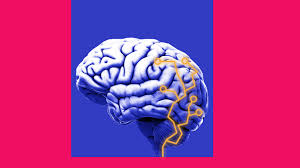Source: analyticsinsight.net
Artificial Intelligence (AI) is poised to disrupt our world. With intelligent machines enabling high-level cognitive processes like thinking, perceiving, learning, problem-solving, and decision making, coupled with advances in data collection and aggregation, analytics, and computer processing power, AI presents opportunities to complement and supplement human intelligence and enrich the way people live and work.
AI is set to have a significant transformational impact on the industry as well as academia. The Indian Government is playing a key role in sustaining the intervention in order to tackle the challenges that AI-specific startups face in order to grow in their verticals. During the 2018-2019 budget, the Government of India has mandated NITI Aayog to establish the National Program on AI. According to the National Strategy for Artificial Intelligence, the underlying thrust is to identify the specific applications of emerging technologies with maximum social impact.
It is quite interesting that India ranks third in the world in terms of research publications related to AI and the India Government has initiated a number of startup schemes related to emerging technologies. AI is set to have a significant transformational impact on the industry as well as academia in the country.
India, being the fastest growing economy with the second largest population in the world, has a significant stake in the AI revolution. Recognizing AI’s potential to transform economies and the need for India to strategize its approach, Hon’ble Finance Minister, in his budget speech for 2018 – 2019, mandated NITI Aayog to establish the National Program on AI, with a view to guiding the research and development in new and emerging technologies. In pursuance of the above, NITI Aayog has adopted a three-pronged approach – undertaking exploratory proof-of-concept AI projects in various areas, crafting a national strategy for building a vibrant AI ecosystem in India and collaborating with various experts and stakeholders. Since the start of this year, NITI Aayog has partnered with several leading AI technology players to implement AI projects in critical areas such as agriculture and health. Learnings from these projects, under various stages of implementation, as well as our engagement with some of the leading institutions and experts have given a better perspective to our task of crafting the national strategy for AI.
However, we are still miles away from unlocking the true value of the huge repository of data collected from different sources using AI and ML techniques, in both the government and the private sector.
There are two broad requirements for diffusion: policy push for spread of AI adoption, and trust of consumers or users, which is the ‘policy pull’. The policy push has been inadequate. The other key ingredient of diffusion is to gain the trust of consumers and citizens by protecting their privacy and data, which is again missing due to the absence of privacy law in India.
First, there has to be increased long-term investment in Artificial Intelligence in both the public and private sectors. India lags behind the top five geographies for private sector investment in AI. The US is far ahead, with investments worth $18 billion, followed by Europe ($2.6 billion) and Israel ($1.8 billion). According to one estimate, China accounted for a greater share of global private-sector funding than the US.
Large companies can afford to invest in R&D but only a few are venturing into it; they are either scared, being risk-averse, or are slow. The start-ups don’t have the money to invest in developing AI and are facing capacity issues. Accordingly, they prefer using existing models rather than develop new ones.
Second: the scope of using AI and blockchain to unlock efficiencies of organizations and systems is maximum in our public sector and government departments. To boost AI infrastructure in India, there is an urgent need for government departments both at the Central and the state levels to adopt AI-based solutions to solve the legacy and intractable problems being faced by them – from increasing agricultural productivity to climate change, from air pollution to disaster management. This will have a multiplier effect that could spur the private sector to jump in.
Third: the government and the private sector must work hand-in-hand, particularly on the R&D aspects of Artificial Intelligence. Public-private partnership models bringing together the expertise of research institutions and universities (including the institutions of eminence), market knowledge along with financial skin-in-the-game by the corporations, and partial financial grants by the government will inspire confidence to innovate using AI. The involvement of the private sector could ensure the research output is market-competitive.
Fourth: promoting STEM courses in early education, revisiting the course-curriculum in colleges and on-boarding industry experts to teach final year students were some of the key recommendations by a tech policy think-tank, The Dialogue, sometime back. Indian higher education programmes also need to be tweaked to include training on AI that cuts across disciplines. The vast network of hugely successful and talented Indian-origin professionals heading large multi-national corporations abroad must be utilized to institutionalize knowledge-sharing, mentoring, and collaborative R&D initiatives.
Fifth: a fundamental challenge with regards to the development of AI in India is the quality of connectivity in the country. India needs to work towards improving its infrastructure and thereby allow for an environment that supports the growth of new technology.
Last: because Artificial Intelligence is so powerful as it has all the information about a consumer to potentially be able to manipulate their behavior, choices, and preferences, India immediately requires a data protection law to ensure individual privacy.


